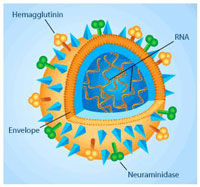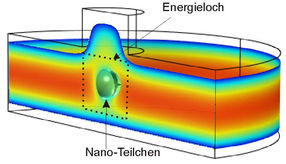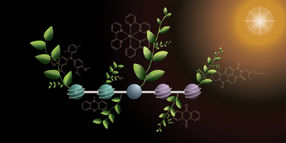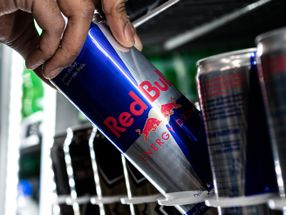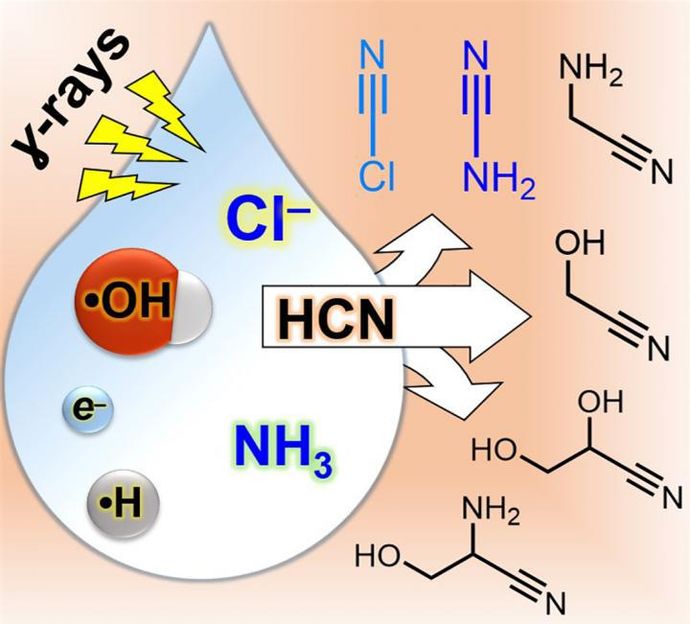Anti-smoking Vaccine in Second Phase
Nabi Biopharmaceuticals Announces Completion of NicVAX(TM) Phase II Clinical Trial Enrollment
Advertisement
BRAY, Ireland. Nabi Biopharmaceuticals (Nasdaq: NABI) announced today that it has completed enrollment for its European-based NicVAX(TM) (Nicotine Conjugate Vaccine) Phase II dose-ranging study in smokers. NicVAX is a novel, innovative, and proprietary investigational vaccine being developed to prevent and treat nicotine addiction.
The study, designed to evaluate NicVAX's safety, antibody response to nicotine, and measure smoking cessation/nicotine dependency, is a randomized dose-ranging study in smokers. The four NicVAX dose levels, 100, 200, 300, and 400 mcg per injection, will be given over a six-month period with 10 patients included per dose group. Based on clinical trial results generated to date, Nabi Biopharmaceuticals has observed no significant toxicity through the 200 mcg dose level, hence the current study is designed to evaluate whether higher doses of NicVAX could further increase anti-nicotine antibody levels without increasing toxicity.
"Tobacco use is expected to kill four million people worldwide within the next year," said Thomas H. McLain, chairman, chief executive officer and president. "Nabi Biopharmaceuticals' NicVAX is potentially advantageous in three important and commercially strategic ways: The vaccine appears to be very well tolerated, even at 200 mcg, the highest dose level tested, allowing us to explore higher and potentially even more efficacious doses; our unique and proprietary mechanism of action for NicVAX, using the same carrier protein as we use in StaphVAX, is based on an established mechanism of action; and, we believe NicVAX is the most advanced smoking cessation product of its kind in development. By the end of 2005, we intend to announce preliminary results from this European Phase II study, be in a position to initiate a European Phase III pivotal trial, and begin to manufacture commercial scale material in our own vaccine manufacturing facility in Boca Raton, Florida."
Positive Clinical Results to Date
In September 2004, Nabi Biopharmaceuticals announced the results from a U.S. Phase II trial with NicVAX that indicated a 33 percent quit rate in smokers who received NicVAX at the highest dose level versus 9 percent in a placebo group. This was a NicVAX-only effect without any additional interventions, supplemental treatments, behavioral support or counseling. (In a study testing a competing treatment, where the vaccine treatment was supplemented with psychological counseling, the placebo response rate reached 31 percent).
The objectives of the U.S. study were to show that NicVAX was able to safely generate nicotine-specific antibodies in smokers, and to assess its potential use as an aid in smoking cessation. Smoking cessation was confirmed by cotinine and carbon monoxide levels, which are biochemical markers of smoking. Nicotine dependency was measured by a questionnaire and also showed a substantial reduction at the top dose of NicVAX as compared to placebo or the lower dose levels.
Henrik S. Rasmussen, M.D., Ph.D., senior vice president, clinical, medical and regulatory affairs, stated, "In order to be clinically successful, smoking approaches must be safe, efficacious and result in long-term quit rates for smokers. Based on clinical results observed to date, we believe NicVAX is well positioned to achieve this goal. We also observed a correlation between anti-nicotine antibody titer levels and anti-smoking activity. As a result, we believe that even higher dosage levels could potentially translate into greater antibody response in smokers. We believe that the results from the NicVAX dose optimization study will provide further compelling evidence that a vaccine approach for smoking cessation is not only a viable approach, but that NicVAX will provide smokers with a much needed smoking aid that supports long- term quit rates, reduced cigarette consumption and reduced dependence on nicotine. We expect that this study will provide an important basis on which to design and advance our pivotal efficacy trials later this year."
Unique Mechanism of Action
NicVAX is a nicotine derivative bound chemically to a specially selected carrier protein using Nabi Biopharmaceuticals' patented vaccine technology.
NicVAX is designed to cause the immune system to produce antibodies that bind to nicotine and prevent it from entering the brain. It is believed that these nicotine antibodies will act like a "sponge" soaking up nicotine as it circulates in the bloodstream and preventing it from reaching the brain. The positive stimulus in the brain that is normally caused by nicotine would then no longer be present, thereby taking away the physical motivation for smoking, consequently helping people to quit.
Studies have showed that vaccination with NicVAX can prevent nicotine from reaching the brain and block the effects of nicotine, including effects that can lead to addiction or can reinforce and maintain addiction.
Other news from the department research and development
Most read news
More news from our other portals
See the theme worlds for related content
Topic world Antibodies
Antibodies are specialized molecules of our immune system that can specifically recognize and neutralize pathogens or foreign substances. Antibody research in biotech and pharma has recognized this natural defense potential and is working intensively to make it therapeutically useful. From monoclonal antibodies used against cancer or autoimmune diseases to antibody-drug conjugates that specifically transport drugs to disease cells - the possibilities are enormous

Topic world Antibodies
Antibodies are specialized molecules of our immune system that can specifically recognize and neutralize pathogens or foreign substances. Antibody research in biotech and pharma has recognized this natural defense potential and is working intensively to make it therapeutically useful. From monoclonal antibodies used against cancer or autoimmune diseases to antibody-drug conjugates that specifically transport drugs to disease cells - the possibilities are enormous



